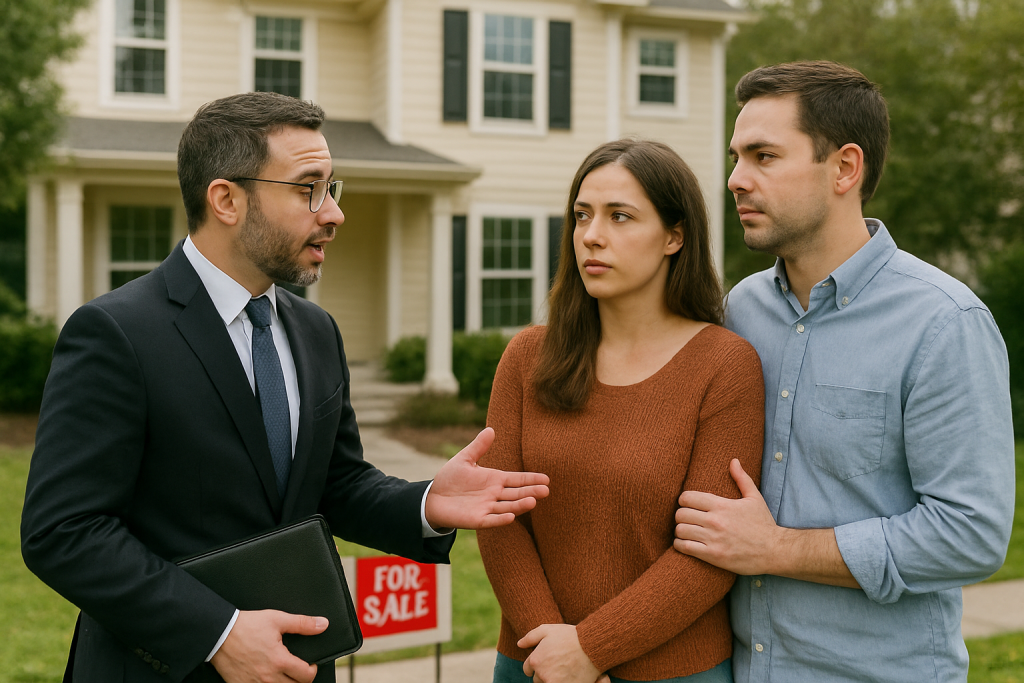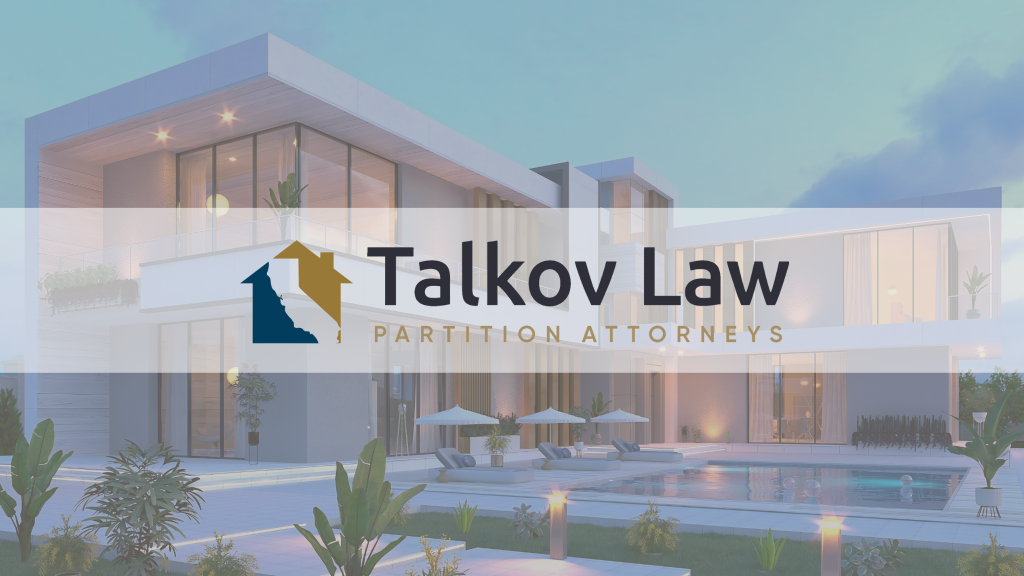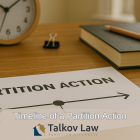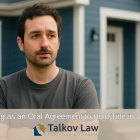No Upfront Cost to Resolve Property Disputes
Partition actions are the only way to fairly resolve real estate disputes between co-owners in California, and Talkov Law has successfully guided countless clients in Butte County through this process with proven results. Our team combines extensive experience in real estate law, deep knowledge of local market conditions, and strong negotiation skills to ensure the best outcomes for our clients.
- Zero Partitions Denied
- 500+ Partition Cases Filed
- Most Cases Resolved in Under 7 Months
- No Fees Unless You Win!
Call Now at (530) 999-5588

Take Action to Resolve Your Partition Dispute
Guided by our experienced partition attorneys, you’ll move through each step while we shoulder the legal complexities.
Co-Ownership Conflict? Not Anymore.
Co-ownership disputes resolved in under 7 months, without any upfront costs to you.
Talkov Law Partition Attorneys are the only California firm exclusively dedicated to partition actions, assisting hundreds of clients in your shoes.
Arrange a Free Consultation
Get personalized advice on your partition case in a no-cost consultation with our team.

Take Legal Action Today

Take Your Share and Move Forward
What is a Partition Action?
A partition action is the legal route taken in court to force the sale or division of property when co-owners are at odds.
Common Scenarios
- Rental property owned by multiple investors
- Inherited rental properties with differing management ideas
- One co-owner refusing to pay their share of expenses
In California, any co-owner has an absolute right to partition real property under California Code of Civil Procedure 872.710.

Hundreds Choose Talkov Law Partition Lawyers
From complex legal battles to life-changing victories, our clients share how Talkov Law helped them find clarity, confidence, and success.
Frequently Asked Questions About Butte County Partition Actions
If you’re wondering whether you can force a sale, how much it will cost, or how long it might take, our FAQ answers the concerns we hear most from co-owners. Don’t see your question? A free consultation is only a click away.
📞 Call (877) PARTITION 📞
What are alternatives to a Partition Action in Butte County?
Co-owners in Butte County can consider mediation or negotiation to reach a mutual agreement, or they might opt for a buyout where one party purchases the other's interest, thus avoiding the need for a Partition Action under California law.
How is the property divided in a Partition Action in Butte County?
In a California Partition Action, including in Butte County, the court may order the property to be physically divided among the co-owners if feasible, or more commonly, it may order the property to be sold and the proceeds divided among the co-owners according to their ownership interests.
Can one co-owner buy out the other in a Partition Action in Butte County?
Yes, in Butte County, co-owners involved in a Partition Action can agree to a buyout where one co-owner purchases the other's interest, thereby avoiding the sale of the property, provided both parties consent to the terms.
How much does a Partition Action cost in Butte County?
Partition actions in Butte County come with a range of expenses, including attorney fees, court costs, appraisals, and other legal services. On average, these cases cost around $20,000, though simpler cases may cost as little as $5,000, while complex disputes involving high-value properties or uncooperative co-owners can go higher.

Butte County Real Estate and Legal Data
- In Butte County, the median home value is around $400,000.
- Butte County has an estimated population of 219,186.
- The average rent in Butte, CA is around $1,600 per month, as of 2025..
At Talkov Law, our Butte County Lawyers have resolved partition disputes in under 7 months with our expert partition strategies.
Why Choose Talkov Law for Your Partition Case?
- Trusted Authority: Over 470 Partition Cases – partition’s most experienced team
- Exclusive Expertise: No other California law firm focuses solely on partition law
- Exceptional History: Not a single partition denied in 16 years


Partition Attorneys Serving All of Butte County
We also serve clients near Westwood, Lassen County, Oroville, Plumas County, Susanville, Paradise, Live Oak, Gridley, Alturas, Modoc County, Portola, and Biggs.
Our attorneys have extensive experience handling partition actions across Butte County.
Local Expertise in Neighborhoods Like: Chico, Oroville, and Paradise. Also Serving Areas in:Chico, Nevada County, Yolo County, Roseville, and Folsom.
Your case will likely be heard at the Butte County Superior Court, located at 1775 Concord Avenue, Chico, CA 95928.


































































































































